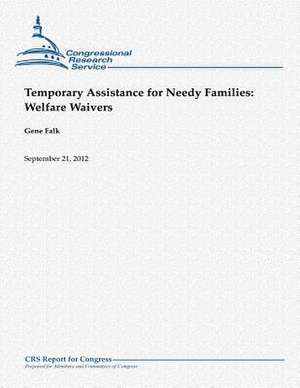Temporary Assistance for Needy Families
Autor Gene Falken Limba Engleză Paperback
Preț: 99.77 lei
Nou
Puncte Express: 150
Preț estimativ în valută:
19.09€ • 19.99$ • 15.80£
19.09€ • 19.99$ • 15.80£
Carte disponibilă
Livrare economică 17-31 martie
Preluare comenzi: 021 569.72.76
Specificații
ISBN-13: 9781480174177
ISBN-10: 1480174173
Pagini: 36
Dimensiuni: 216 x 280 x 2 mm
Greutate: 0.11 kg
Editura: CREATESPACE
ISBN-10: 1480174173
Pagini: 36
Dimensiuni: 216 x 280 x 2 mm
Greutate: 0.11 kg
Editura: CREATESPACE
